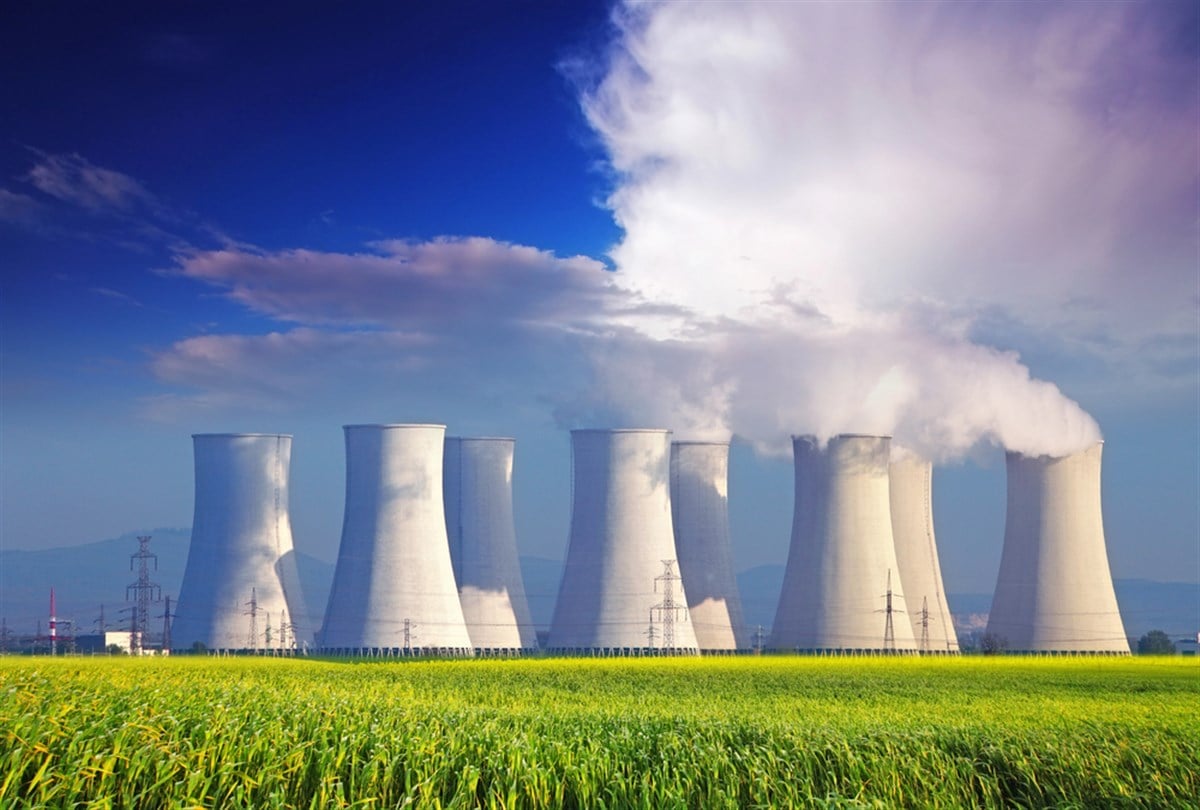
Processing artificial intelligence (AI) queries consumes 300% to 400% more electricity than normal searches. The need to power the AI revolution triggered a race to find and lock down alternative sustainable energy options for the major hyperscalers in the computer and technology sector. Nuclear energy as a clean energy source to power data centers made headlines after Microsoft Co. (NASDAQ: MSFT) signed the largest power purchase agreement ever with Constellation Energy Co. (NASDAQ: CEG), which will require restarting a nuclear reactor on Three Mile Island. Other hyperscalers followed. Here’s how three major hyperscalers are turning to nuclear to power their AI data centers.
Microsoft: Signs a 20-Year Power Purchasing Agreement, the Largest in History
Microsoft made the proverbial shot heard around the world when it signed the largest power purchase agreement in history with Constellation Energy. Constellation Energy plans to revive the 835 MW Three Mile Island Unit 1 Nuclear Reactor pending approval from the U.S. Nuclear Regulatory Commission. Microsoft has agreed to buy electricity from the nuclear plant for its data centers in the Pennsylvania region. Constellation will invest $1.3 billion of its capital to kickstart the plant by 2028.
Microsoft has over 300 data centers spread out through more than 34 countries, which help provide the backbone for the Microsoft Cloud. Microsoft has committed to reducing the environmental impact of its data centers by sourcing sustainable clean energy sources and investing in sustainable innovations.
Amazon: Growing Its Nuclear Ambitions and Transition to Carbon-Free Energy
Amazon (NASDAQ: (AMZN) may have initially started the nuclear movement with its acquisition of the 1,200-acre Cumulus Data Assets data center from Talen Energy in March of 2024 for $650 million. The campus is located right next to Talen's nuclear energy plant, the Susquehanna Steam Electric Station in Salem Township, which happens to be the sixth-largest nuclear plant in the country. Talen will sell electricity directly to the data center in 120 MW increments up to 960 MW. Since they will be sourcing directly, Amazon will avoid paying $140 million in transmission fees.
This has caused competing utilities to try to stop the deal stating that the $140 million of costs would fall onto its customers and that Amazon is getting a free ride since they would still be benefitting from the transmission system. The Federal Energy Regulatory Commission (FERC) is expected to rule on the precedent-setting co-location dispute as more cloud providers seek to co-locate their data centers with power plants.
Investing in Small Modular Reactor Technology
Amazon announced it was investing in small modular reactor (SMR) technology with various companies. It's part of a bring your own power (BYOP) initiative to the buildout of data centers, which has state officials excited. SMRs are smaller nuclear reactors that can be built faster and closer to the grid since they have a smaller footprint. It also enables them to come online more quickly. SMRs can be scaled, meaning they can be built and deployed in increments as power needs grow. Utilities can add on capacity as needed and deploy multiple units on a single site.
This means less capital is required upfront. They can also be constructed in factories and then transported to sites. Amazon, along with various investors, made a $500 million investment in its Series C-1 financing round for X-energy, a developer of next-gen SMR reactors and fuel. X-energy's nuclear reactor design is expected to be used in the 320 MW Energy Northwest project. Amazon hopes to bring 5 GW of electricity online by 2039.
Teaming With Dominion Energy for SMRs
Amazon signed an agreement with Dominion Energy Inc. (NYSE: D) to explore developing an SMR project near its North Anna nuclear power plant to bring at least 300 MW of power to the Virginia region, which is expected to increase its power demand by 85% over the next 15 years. SMRs can provide around one-third of the power of a traditional nuclear reactor.
Google: Trying to Bring SMRs Online by 2030
Not to be outdone, Google (NASDAQ: GOOG) announced a new clean energy agreement to purchase nuclear energy from multiple SMRs developed by Kairos Power. Google expects the first SMR to come online by 2030, with more coming online through 2035, generating 500 MW for the grid. Kairos will have up to seven SMRs to supply 500 MW of electricity to its data centers.
ASML had a hiccup in its third-quarter 2024 earnings report. Bookings collapsed 53% YoY. This was mostly due to falling demand in non-AI and consumer electronics. AI demand remains robust. The company lowered its Q4 2024. Net bookings dropped 52.8% but rose 1.2% YoY in Q3 2024. However, the company expects strong sales growth to $37.45 billion in 2025, driven by AI demand. Google consumed 24 million MW of electricity in 2023 to power all its data centers and operations.
